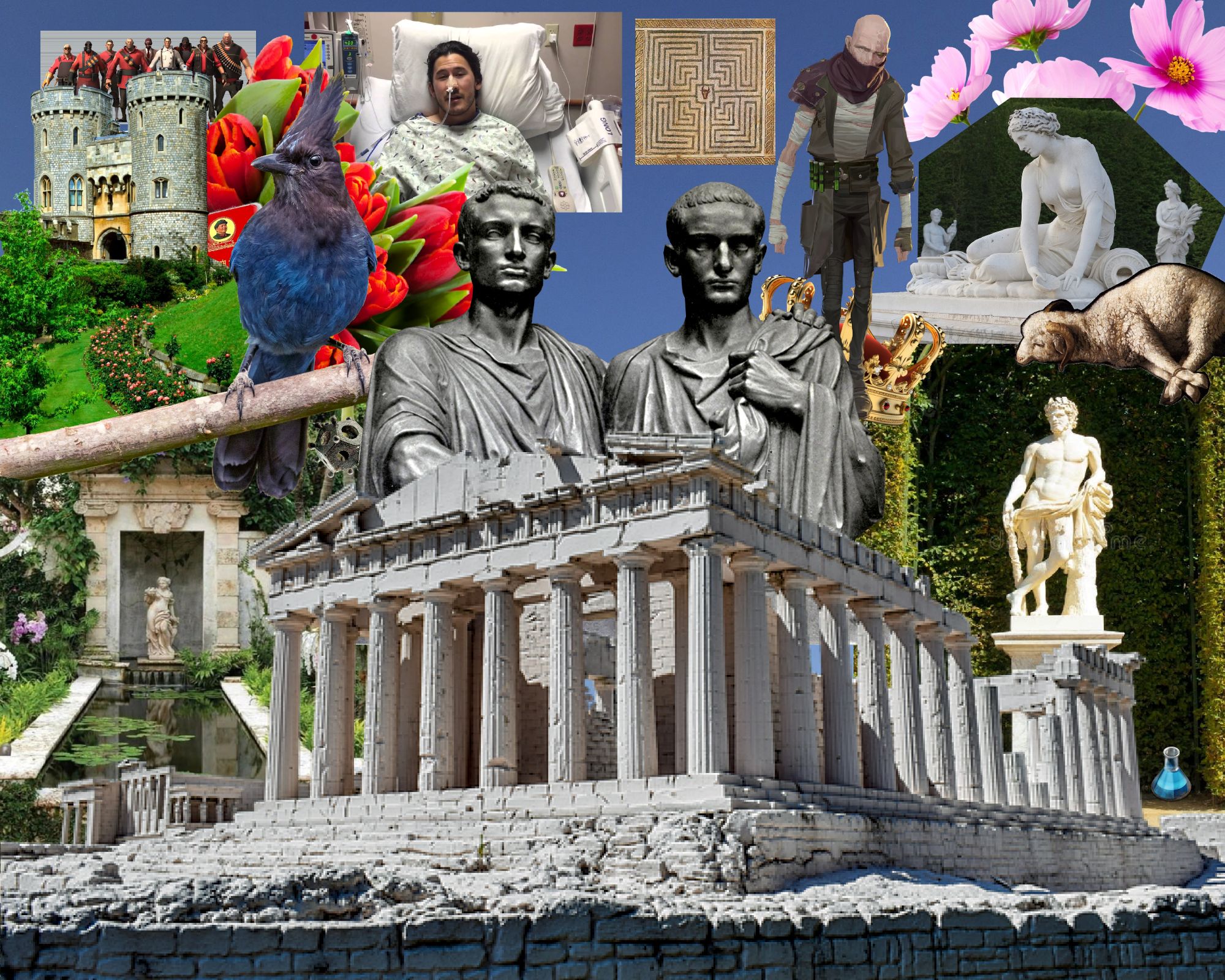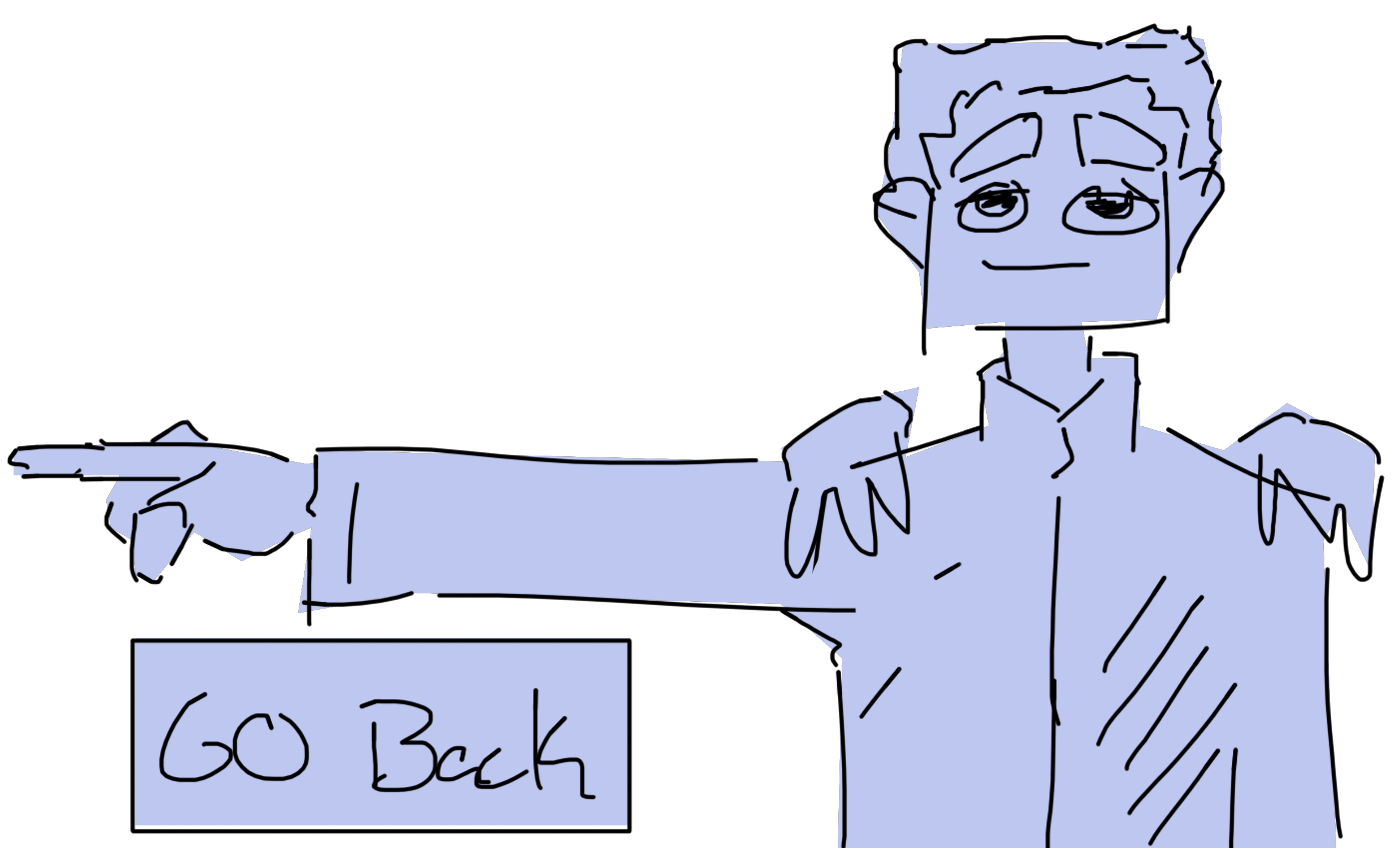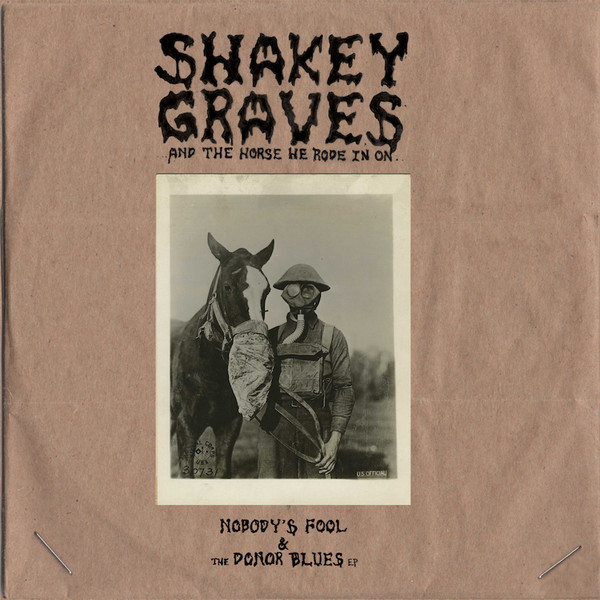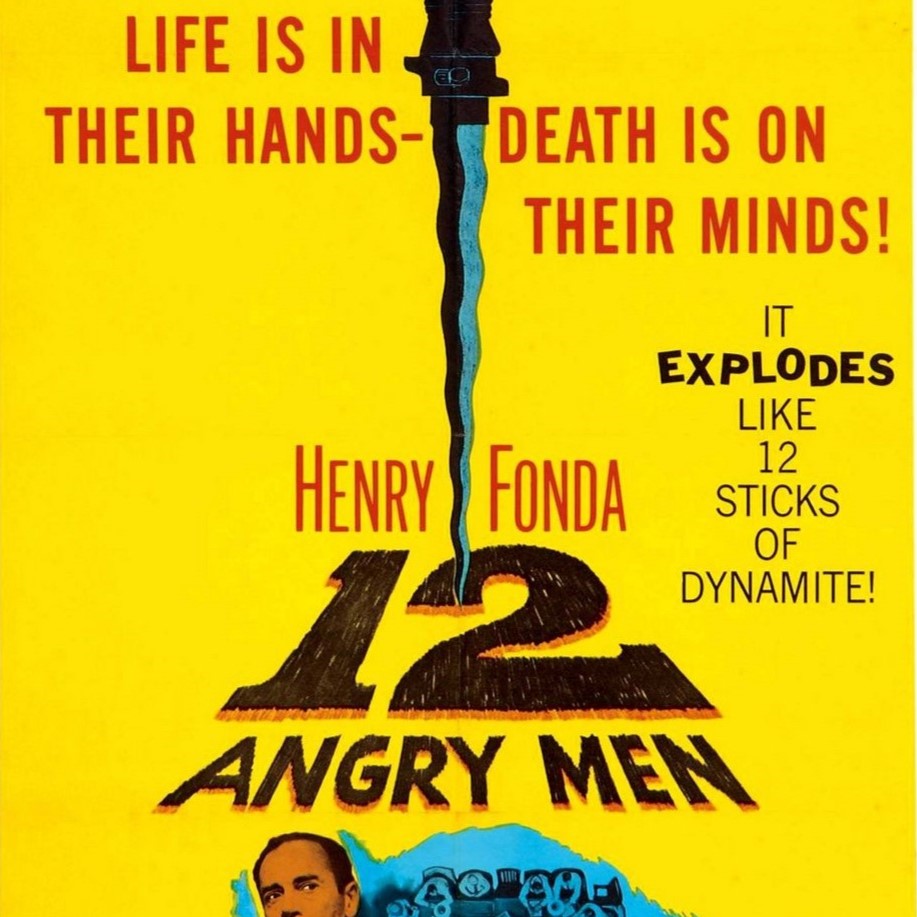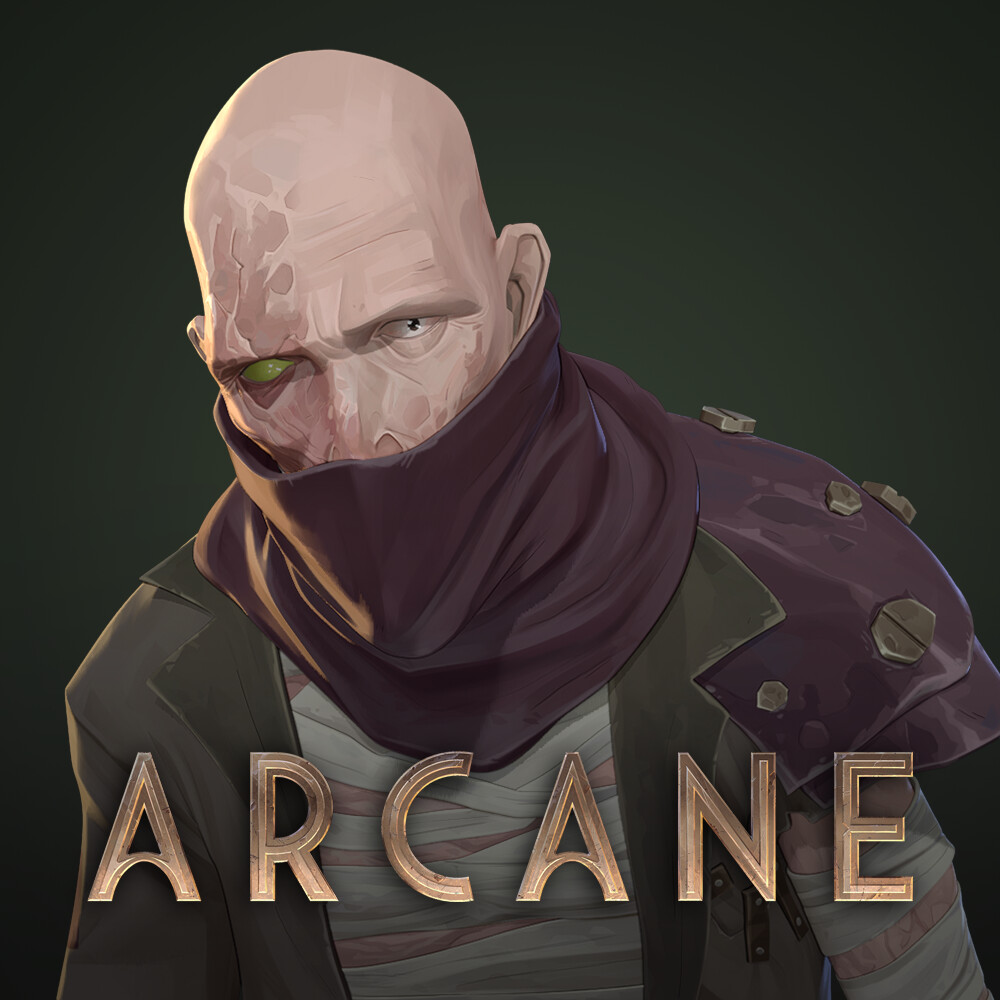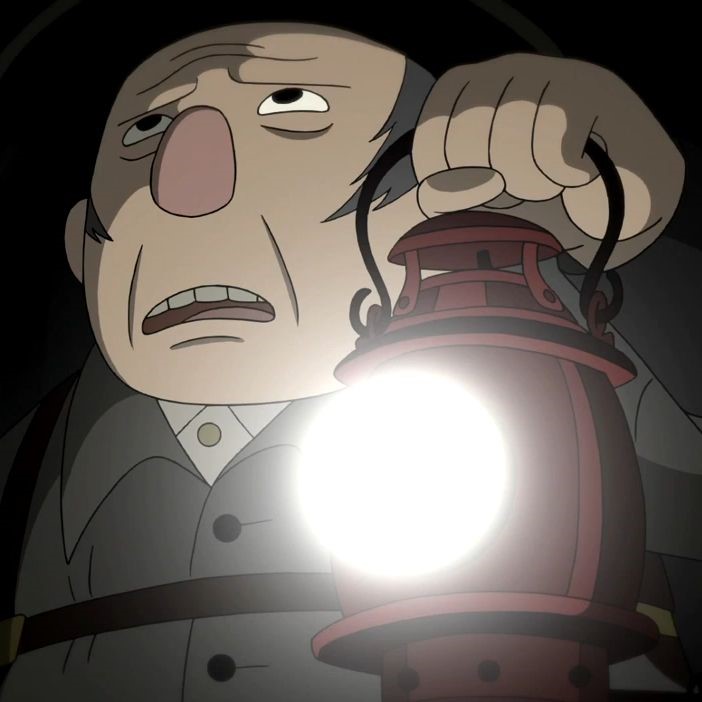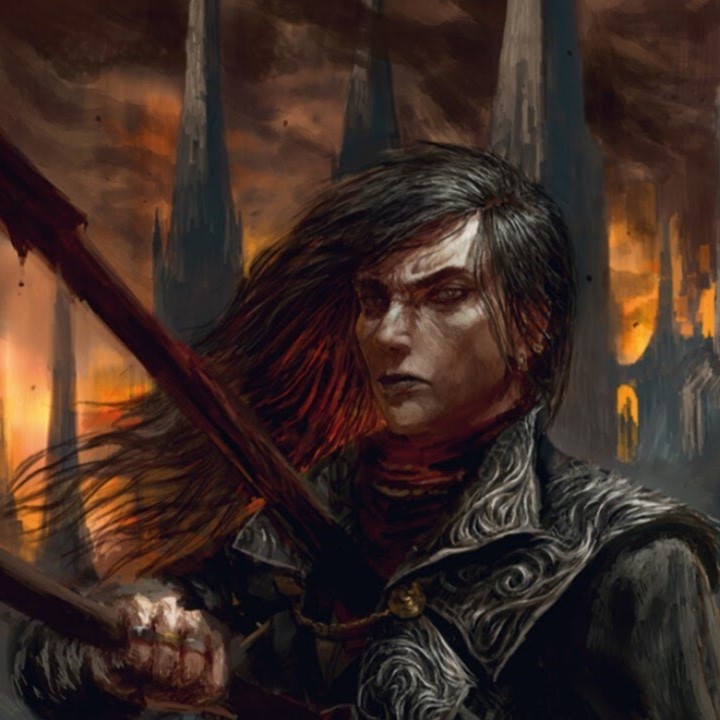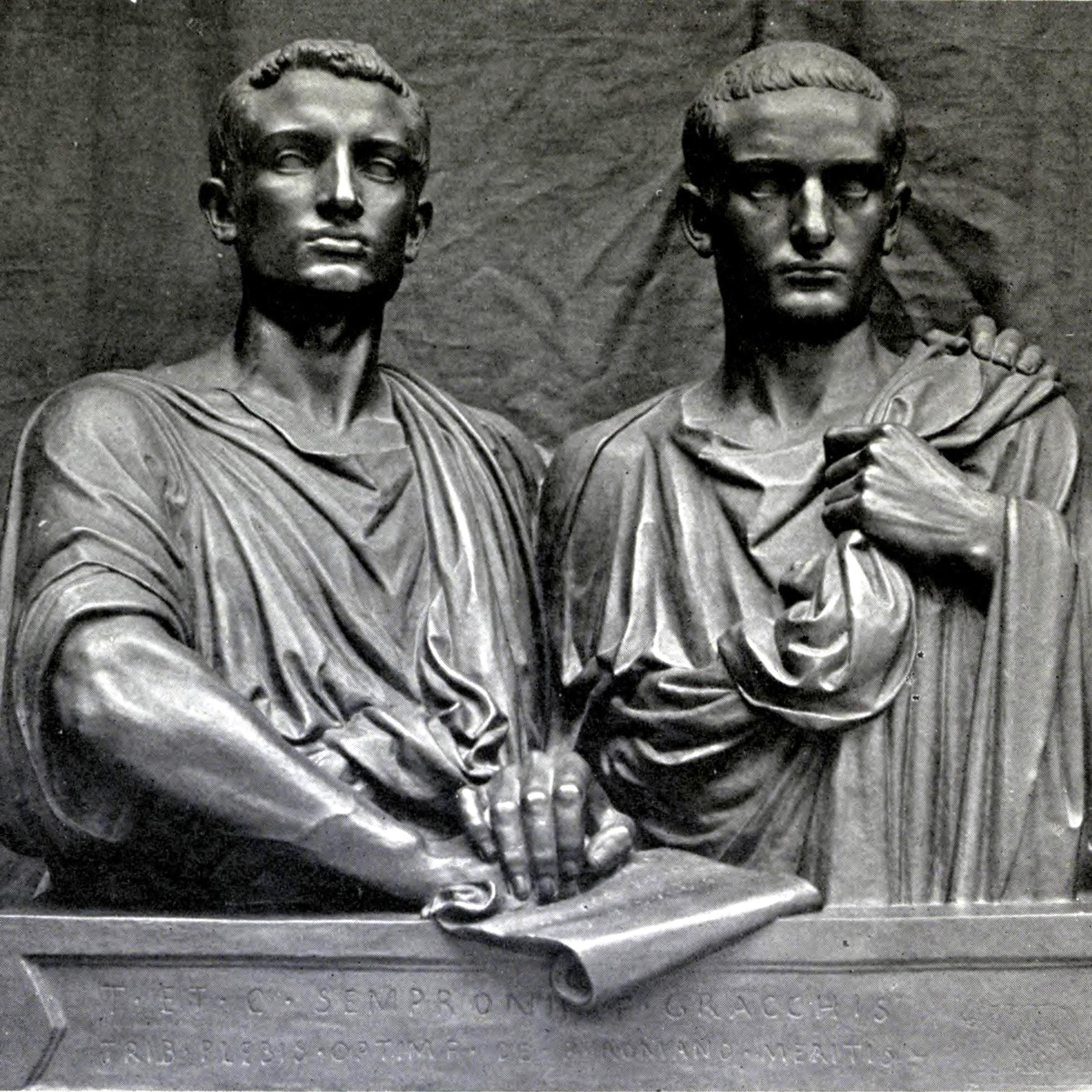Character
Backstory
Ronan began life as a simple farmer, he was involved in a rebellion and became a council member of a ruling oligarchy. He was exiled, lost his family, and became a forest hermit. A forest god fell in love with him. Sun & Moon who were seeking out gods found and befriended Ronan in search for the forest god. They convinced Ronan to betray the forest god and return to his old life. Ronan, Sun, & Moon spend years together, then apart, then a final year together on their quest to become divine beings. Upon their ascension, Ronan splits ways from Sun & Moon and returns to his kingdom. Ronan uses his newfound powers to forcibly disband the council and set himself up as the sole monarch. He rules for centuries, in immortal vigor. He begins another family who are taken hostage and their throats slit. Ronan's son manages to survive but only if Ronan gives his blood to his son daily. As a result of daily bloodletting Ronan becomes physically weak and very slowly begins to feel the effect's of time. It is in this state that Sun finds Ronan in when Sun returns to see his old friend after centuries apart.
Profession
Heavy is the head that wears the crown! Ronan is a king, his unnoficial title as the young king came about as a reference to his eternal youth as a god. The phrase took on an ironic tone after his son's coma when Ronan began to visibly age.
Childhood
Ronan was born in an age long past, a time of instability and injustice. In the recent years before Ronan was born the kingdom had weathered the comings and goings of 6 large scale rebellions, the most recent of which reached the capitol gates. The 6th and final rebellion was led by Ronan's grandfather's generation, and like the prior five rebellions, it was ultimately squashed. The failure of the 6th rebellion was largely due to the assistance of the Chou, a prominent noble family at the time, who used their private army as a last bastion for the king. Saving the kingdom placed the Chou in a unique position of power over the royal family. They leveraged this power to their advantage and maneuvered their way into a ruthless betrayal. The Chou overtook the throne by systematically killing off or exiling powerful members of the royal family. For years they locked the prince in his room under a false pretense of danger, to protect him from the same fate that seemed to follow the other prominent members of his family. When all powerful enough to pose a threat had been killed or exiled, the Chou installed the young king as a figure head. The Chou ruled through him for many years then forced him to marry into their family. The king refused for he had already fallen in love with another: one of the maids who tended to him while he was secluded in his room. When it became clear the Chou could not force the king's marriage, they killed him and reinstated themselves as the kingdom's royal family.
Ronan was born in a poor farming village. His family lived under the heavy weight of the tyrannical rule of the Chou dynasty. The kingdom siphoned off food and wealth for their coffers and growing empire, conscripted labor was mandatory and anyone could be called to work at any time. Growing up, Ronan's grandfather told him stories of their glorious rebellion. He would regale tales of bloody fighting, noble sacrifices, long marches, and most of all, of storming the outer walls of the capital city. These stories were told by grandparents to their grandchildren all across the country. In farming and impoverished towns such as the one Ronan lived in, rebellions became a romanticized culture where communities were effected by heavy taxes and random conscriptions. As a child Ronan would play rebellion games with his friends where they would pretend to fight and overthrow the king. When Ronan was 8, his father was called to work on a large canal being built to facilitate trade and cheaper transportation. The work was expected to take two years but his father never came back, after four the family had given up hope, and a year after that Ronan's mother had remarried. Ronan became even more resentful of the empire and swore he would do whatever he could if another rebellion came.
The Rebellion
As time passed Ronan grew into a man waiting for his great rebellion to join. He became obsessed with the thought of it. It was constantly the topic of conversation between him and his peers. They spoke about their thoughts of how things should be done and what they would do if they were in charge. There were 25 of them in all and they each felt something was deeply wrong with the way things were done. As a group they collaboratively wrote a small book that summarized their thoughts, feelings, and their passions. The book was passed around the group and each person scribed their own version to keep for themselves. When all copies were finished, everyone signed their names in each book. They were originally written in secret intended just for the 25 of them. But some members were too proud of their work not to show it off. They would lend or give their copy away to those close the them, a few were even lost and had to be re-written.
Their philosophy flooded the valley, popularity for the book grew like wildfire and more copies were demanded. The signatures were withheld for all subsequent iterations of the book for fear of one falling into the wrong hands. Soon neighboring villages began receiving and making their own copies of the book with no author. This popularity garnered the attention of the crown and one member of the group, a close friend of Ronan, was discovered by the authorities and hung for treason. Gallows were set up in town for the purpose of making an example of him. His body was hung and taken by the guards. The man's father pleaded with the guards for the body of his son, to burry his own child. The king's men refused and would not relent. The child's poor father begged and prostrated to the guard but was kicked for his humility. His wife was enraged and grief stricken, she threw herself at the guard but was beaten back. The people of the town enclosed on the guards, trying to pressure them to give back the corpse. Tensions escalated, the guards brandished their weapons and a mob of townsmen fell on them. Before it could be stopped, the king's men were killed. That confrontation was the catalyst for the rebellion. Once word of their transgressions reached the crown, the consequences for those involved would be dire.
If the people of the village were going to die they chose to die as martyrs defending themselves from the king's justice. They chose to die fighting rather than leave their lives to the fate of the crown. Ronan had always imagined joining a rebellion, never starting one. The 24 led the town in defense fortifications and weapons making. Walls were set up around the town, swords and spears were manufactured. Nearby villages gave their support, they lent supplies and man power. The gravity of the situation was underestimated by the royal military who assumed this was just a handful of transgressors. By the time a small force was gathered, sent out, and reached the town they realized they were out of their depths and were forced to retreat.
Word quickly spread and neighboring towns joined in open rebellion. The more the crown fought they more vehemently they were opposed. The rebellion lasted for years and eventually made it past the outer gates of the capitol city. The Chou refused help from noble families out of fear for what they did the the previous royal family would be done to them. The Chou decided it better to fall at the hands of the people then to die weak and bled out like the royal family prior. They were dethroned, hanged, and their bodies given to their closest relatives. The 24 abolished dynastic rule and instated themselves as a righteous oligarchy.
The Reclamation Wars
The twenty-four men formed a council and immediately cut taxes and imported smaller quantities of food. The council disbanded a large portion of their standing army for labor to build infrastructure and upkeep roads. The fledgling capital no longer held much political weight in the country. The rebellion's success was in part due to the decades long atrophy of the crown's power. For generations power had been leaking into wealthy political families which had formed autonomous states in all but name. These large estates betrayed the crown's call for help against the rebellion, with the intent to divvy up the kingdom for themselves. In light of the rebellion and power struggle, many seceded from the crown to become independent states. In an effort to reclaim lost territories the council raised a conscripted army to protect the sanctity of the new government and reinstate the country's pre-rebellion borders. The army was a large expense, and forced the council to reconsider how much they taxed the people. The reclamation wars began in the west, moved to the north, and reached the east, crushing the old houses and reinstating new sub-councils that were loyal to the capitol. Rule had been reclaimed throughout the country excluding the Southern regions which were further from the capitol and better defended. To expedite the southern military quagmire, the council voted for increased conscription. The capital used their newly mustered force to subdue the south and regain its pre-rebellion borders. The great force was disbanded and sent back home. When news of the disbanded army reached the east, a large rebellion broke out, backed by one of the new sub-councils. The army was re-conscripted and once again fought to regain control of the east. To discourage further incidents a small standing army was created, and twelve of the twenty-four original council members were sent to oversee various important sub-councils across the country.
Conscripted citizens were finally able to return to their homes after years fighting in the reclamation wars. Thanks to these wars, lower class families were burdened with military service and poverty. During the years campaigning, the properties of these families fell into a state of terminal neglect. Upon returning home a discharged soldier was likely to find the time, effort, and resources to return his land to its former productivity beyond his means. Wealthy noble families exacerbated the growing divide between the rich and poor as they looked to invest their riches. They absorbed hundreds of dilapidated plots, sometimes destitute families sold willingly, happy to get something for a property they could no longer afford to work for themselves. Holdouts were often bullied into quitting their land as these newly acquired small plots combined into larger estates, the agricultural landscape began to revert from small independent farms, to large commercial operations dominated by the few.
Tropes
- God-Emperor: After using his powers to ascending to power, Ronan rules as a benevolent immortal being.
- The Chessmaster: Ronan plays a subtle yet influential role in Sun's actions, and wider political climate.
- Deity of Human Origin: The only widely known human deity, he is functionally immortal and magically very powerful.
- Living Lie Detector: Through the power of his domain and a thousand years of practice reading people means there is not much that can get past him.
- Shrouded in Myth: Due to the nature of domains, and his reclusive nature few see him. While legends of various feats exist, no one living has any real idea of what Ronan is physically capable of.
- Does not like magic: While his is a demi-god, meaning he has reached the peak of magical ability, he entirely relied on Sun for the achievement. He has become decently learned in it as with all academic endeavors, but it is by far his least favorite. He feels bitter about magic in general due to the burden it has placed on him.
- Who wants to live forever: Ronan's kingdom weighs as a heavy burden, he is tiered of being king but feels obligated to remain on the throne.

Relationships
Sun & Moon - they his closest friends, they've spent years together and developed a strong bond that turned into fond memories over their centuries apart.
Ronan's Son - his only living relative, he is in a coma and needs Ronan's blood every day to survive. The daily blood transfusions are the reason for Ronan's slowly declining health.
Shit for the story
Cole asks where she is, Theodore asks for the map and Sun does not show it to her making theo suspicious Sun is lying.
when boarding the ship they enter on small boats and are ferried out incase anyone has any magic on them. Because the magic is nearly imperceptible the ferry does not get pulled under, but it does capsize.
Character based on john law.
